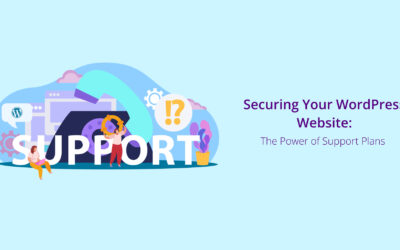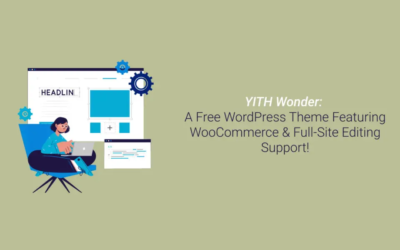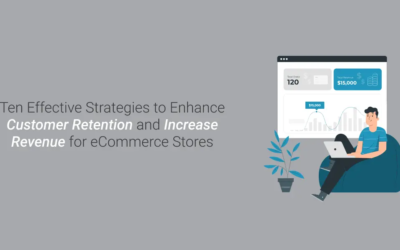Since its release in 2003, WordPress has never stopped growing.
At its core, WordPress is the simplest, most popular way of building a website. The open-source content management system with GPLv2 signifies that anyone can use and modify WordPress to suit their enterprise requirement. In 2020, WordPress held a market share of whopping 63.5% market share for CMS on websites with known content management systems.
Though the stats demonstrate the popularity and dominance of WordPress, businesses have to take a closer look to compare their requirements with the features of WordPress CMS to make an informed decision. Does WordPress live up to the hype and handle the requirements of an enterprise website? Let’s find out.
What is a CMS?
Content Management System is a software that provides an easy-to-use interface to seamlessly manage different aspects of the website like content without the requirement of in-depth programming. The integration of a flexible CMS to your business empowers you to quickly alter and optimize the website easy to manage and scale effectively.
The WordPress CMS is a powerful tool that gives you the liberty to simply log in to the website dashboard, use the simple and straightforward interface to generate webpages, customize designs, and add or modify the content present.
What makes WordPress CMS stand out from the competition? Let’s find out.
1) Open-Source Software
Businesses usually spend a hefty amount on renewing their license fee every year with CMS. The WordPress ecosystem is built to bring efficiency and transparency, which means there would be no overhead costs to your business. The CMS allows you to modify and enhance the code, which will be comprehensively peer-reviewed by dedicated developers. Developers from around the world are working and improving WordPress as a community. You will also be receiving regular updates to the world-class CMS to bring new functionalities and capabilities to your system, all at zero cost.
2) User-friendly and Familiar Interface
WordPress has an easy-to-use, intuitive back-end interface that makes sure that the learning curve to the software usage is thin-lined. Every functionality is fit in a way that the training cost is minimal. WordPress also ensures that its interface doesn’t change dramatically with every update. Since WordPress is widely popular and known to many, chances are your employees are already familiar with the platform in a previous job role or a personal capacity – carrying the knowledge forward to your business.
3) Publishing Content is a Breeze
Most CMS solutions are not built with publishing as the focus factor. On the other hand, WordPress began its journey as a Blogging Platform, which means the platform is user-centric. It comes with countless free extensions, including SEO, RSS feed, Authorship, Editorial Publishing Workflow, Moderation, Revision, and more. The publishing prowess is one of the significant reasons for the growth of WordPress as a robust CMS trusted by global enterprises.
4) Compatibility with 3rd Party Applications
An enterprise has various metric requirements that mirror its goals. The seamless compatibility with third-party applications makes it easier for businesses to provide a holistic experience for the end-users to utilize all the avenues to maximize reach and revenue. You can also choose to build your customized plugin to bring out the functionality you desire.
5) Highly Secure
Since it is open-source, it has a comprehensively peer-reviewed source code. The vulnerabilities and breaches can be discovered and fixed at ease. Your website will be an enterprise-class, fully secure website by deploying industry-recommended security protocols, strengthening server security, and locking site access. Choosing the right agency to build your website can ensure that this aspect is fulfilled to perfection.
6) SEO-friendly
Sites built with WordPress constantly flare well in search engine results. There are plugins to analyze content, provide readability scores, and urge authors to include SEO essentials to their content – from meta tags, keywords, links, and other key metrics.
By comprehensively addressing all the CMS requirements of business websites, WordPress establishes itself as a compelling option. That said, selecting the optimal CMS for your business is a significant decision. If you evaluate your budget, ambitions, and technology management skills, you will be able to find the right CMS for your business.





0 Comments